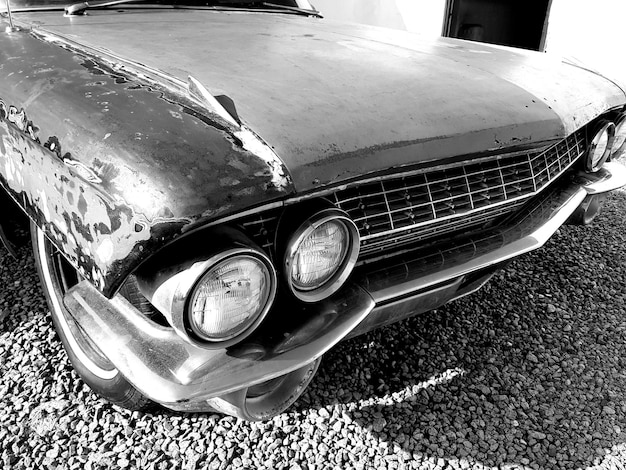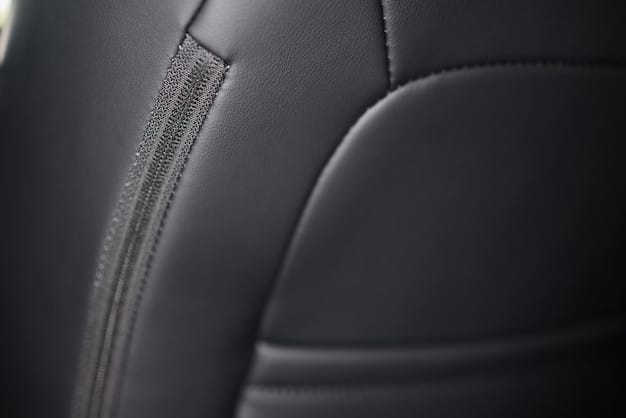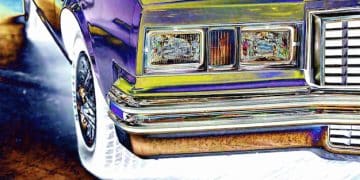The Psychology of Car Customization: Automotive Modification & Identity

The psychology of car customization explores how individuals express their identity, values, and personal narratives through modifying their vehicles, turning cars into extensions of the self.
The automotive world is more than just transportation; it’s a canvas for self-expression. The psychology of car customization: expressing identity through automotive modification reveals how individuals use their vehicles to communicate who they are, what they value, and where they belong.
The Deep Dive into Automotive Self-Expression
Car customization is a multifaceted endeavor, blending aesthetics, functionality, and personal meaning. It’s a way for car enthusiasts to stamp their personality onto their vehicles, creating a unique reflection of their inner selves.
The Car as an Extension of Self
The concept of the “extended self” in psychology suggests that people incorporate possessions into their identity. Cars, being significant investments and daily companions, often become powerful symbols of who we are.
Customizing a car is analogous to choosing clothing styles or decorating a home—it’s a way of curating an external image that resonates with our internal identity.
- Personalization fosters a deeper emotional connection with the vehicle.
- Modified cars often become conversation starters, inviting social interaction.
- The act of customization can be therapeutic, providing a sense of control and accomplishment.
Ultimately, car customization boils down to making a statement about one’s individuality within a community of like-minded enthusiasts.

Why Customize? Exploring the Motivations
Understanding the motivations behind car customization can shed light on the psychological needs it fulfills. These motivations range from a desire for uniqueness to a quest for enhanced performance.
Standing Out from the Crowd
In a world of mass-produced goods, customization offers a way to break free from uniformity. A customized car becomes a unique work of art, distinguishing its owner from the masses.
This desire for distinctiveness is a fundamental aspect of human psychology, driving individuals to seek ways to express their unique identities.
Personal Taste and Preference
Customization allows individuals to tailor their vehicles to their specific tastes and preferences. Whether it’s a particular color, a specific type of modification, or a certain aesthetic, customization enables individuals to create a car that truly reflects their personal style.
- Material choices reflect personal values and aesthetic preferences.
- Customization provides an outlet for creative expression.
- Modifications can enhance the driving experience, making it more enjoyable.
The Subcultures and Communities of Car Customization
Car customization often thrives within specific subcultures and communities. These groups provide support, inspiration, and a sense of belonging for enthusiasts.
Lowriders: Art on Wheels
The lowrider culture, originating in the Chicano communities of Southern California, is a prime example of how car customization can be deeply intertwined with cultural identity. Lowriders, with their intricate paint jobs, hydraulic suspensions, and elaborate interiors, are rolling works of art.
JDM: Japanese Domestic Market
The JDM (Japanese Domestic Market) scene revolves around modifying Japanese cars with parts and accessories that are typically only available in Japan. This subculture emphasizes performance, aesthetics, and a deep appreciation for Japanese automotive engineering.
Modified JDM cars often feature:
- High-performance engines and drivetrain components.
- Aggressive body kits and aerodynamic enhancements.
- Unique interior features and accessories.
The JDM community is known for its technical expertise and meticulous attention to detail.

The Psychological Benefits of Car Modification
Engaging in car customization can have several psychological benefits. From stress relief to enhanced self-esteem, the act of modifying a car can be a positive and rewarding experience.
Stress Relief and Mindfulness
Working on a car can be a form of stress relief. The act of tinkering, problem-solving, and creating something with your own hands can be a mindful and therapeutic experience.
Sense of Accomplishment and Pride
Completing a modification project, whether it’s a minor aesthetic upgrade or a major performance overhaul, provides a sense of accomplishment and pride.
This sense of accomplishment can boost self-esteem and confidence, especially when the project is challenging or requires significant effort.
- Increased self-esteem from mastering new skills.
- Positive feedback loop from admiring peers and enthusiasts.
- Sense of ownership and control over one’s environment.
The Risks and Challenges of Car Customization
While car customization can be a rewarding experience, it also comes with potential risks and challenges. These include financial considerations, safety concerns, and legal regulations.
Balancing Budget and Desires
Customizing a car can be an expensive endeavor. It’s essential to set a budget and prioritize modifications based on their impact and cost.
Ensuring Safety and Compliance
Some modifications can affect a car’s safety or legality. It’s crucial to research and understand the regulations in your area and to ensure that any modifications are performed safely and correctly.
Consider these when modifying your vehicle:
- Compliance with local and federal regulations.
- Potential impact on vehicle insurance premiums.
- Ensuring aftermarket parts meet safety standards.
The Future of Car Customization
The future of car customization is likely to be shaped by technological advancements, evolving consumer preferences, and a growing emphasis on sustainability.
Emerging Technologies and Trends
3D printing, virtual reality, and artificial intelligence are poised to revolutionize the car customization industry. These technologies will enable enthusiasts to design, visualize, and create custom parts with unprecedented ease and precision.
Sustainable Customization
As environmental awareness grows, so too will the demand for sustainable customization options. This includes using eco-friendly materials, optimizing fuel efficiency, and repurposing parts from salvaged vehicles.
| Key Insight | Brief Description |
|---|---|
| 💡 Identity Expression | Car customization embodies personal expression via modifications. |
| 🛠️ Psychological Benefits | Enhances self-esteem and provides stress relief through creative projects. |
| 🌍 Cultural Subcultures | Subcultures like Lowriders and JDM express culture through cars. |
| 🌱 Future Trends | Sustainable practices and technology will shape future customizations. |
[FAQ]
Frequently Asked Questions
▼
People customize their cars to express individuality, enhance performance, or reflect their personal style and preferences through various modifications and personal touches.
▼
Common trends include custom paint jobs, body kits, modified suspensions, performance upgrades (engine tuning, exhaust systems), and interior enhancements like custom upholstery.
▼
It boosts self-esteem by fostering a sense of accomplishment, promoting skill mastery, and providing an outlet for creative expression and unique personal style.
▼
Legal aspects vary by region, involving regulations on tinted windows, exhaust noise, suspension modifications, and lighting, ensuring all changes comply with local laws.
▼
Technology like 3D printing allows customized parts, and virtual reality enables visualization. AI helps with design and performance optimization, revolutionizing the customization process.
Conclusion
Car customization is more than just altering a vehicle; it is a profound expression of identity, personal values, and cultural affinity. It offers psychological benefits, challenges, and a glimpse into the future of automotive culture, making it a compelling area of study and participation.





